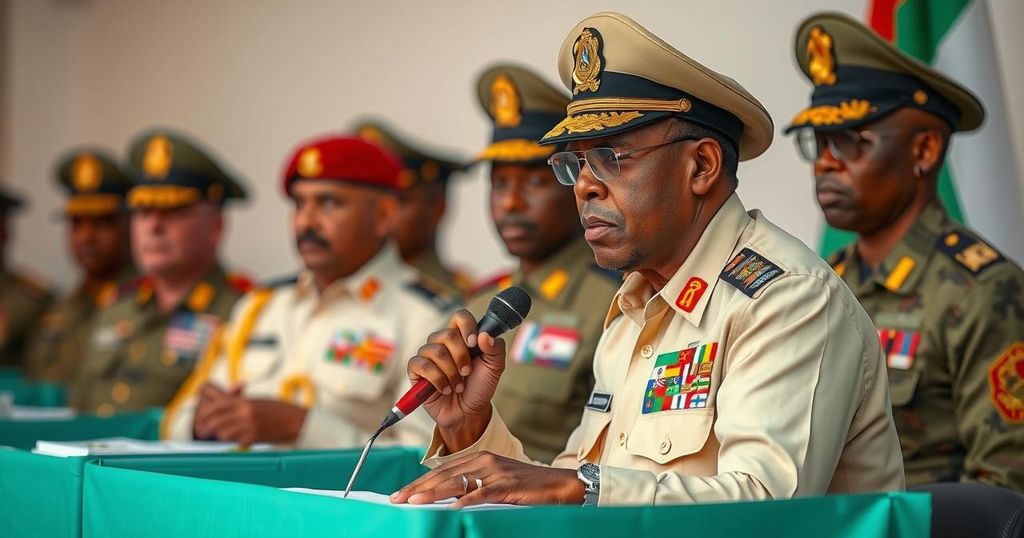Chad Votes Amidst Opposition Boycott in Key Election for Democracy

Chad conducted a general election aimed at transitioning from military rule amid widespread boycott calls, resulting in a reported turnout of only 38 percent. Opposition parties contest the legitimacy of the election, claiming results are predetermined. The government promotes the elections as essential for democratic progress while facing allegations of electoral fraud and ongoing security challenges.
Chad held a general election on Sunday, aiming to transition away from three years of military rule, despite widespread opposition calls for a boycott. Preliminary reports indicated a turnout of merely 38 percent as many citizens heeded opposition parties’ calls to avoid participating, citing predetermined outcomes. Politicians aligned with President Mahamat Idriss Deby Itno, who ascended to power following a military takeover in 2021, stood poised to dominate the election due to the absence of significant competition. Deby himself encouraged participation, labeling the election a historic opportunity for change. However, critical voices questioned the legitimacy of the electoral process, asserting that the results were preordained. Amid ongoing socio-political challenges and security threats from groups like Boko Haram, the government portrays these elections as pivotal in the journey towards democratic governance. Observers monitored the electoral sites, while several allegations of electoral fraud emerged beforehand, further complicating the process. Voting is expected to significantly influence local governance, especially for marginalized groups, amidst the backdrop of economic hardship and climate change impacts.
Chad’s current political landscape is largely shaped by a military government following the death of long-time leader Idriss Déby in 2021. His son, Mahamat Idriss Déby Itno, assumed power, heralding promises of democratic reforms but facing skepticism from opposition factions. The call for a boycott reflects deep-rooted distrust in the electoral process, which has witnessed allegations of predetermined results and fraudulent practices. The social and economic context includes widespread poverty, job scarcities, and increasing security challenges from armed groups. The upcoming elections are viewed by the government as a crucial step toward establishing democratic rule, though many citizens remain disillusioned with their voting options.
In conclusion, Chad’s general election represents a critical juncture in the nation’s political evolution, moving away from military control towards a more participatory governance structure. Nonetheless, the low turnout rate and calls for boycott underscore significant public discontent and skepticism regarding the electoral integrity. As the nation grapples with socio-economic challenges and security threats, the election’s outcomes may nonetheless shape the future political balance, albeit amidst concerns over transparency and fairness in the electoral process.
Original Source: www.communitynewspapergroup.com






